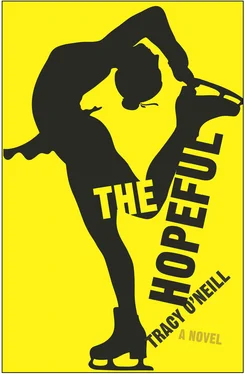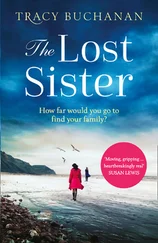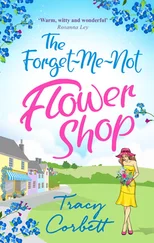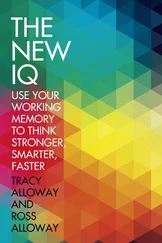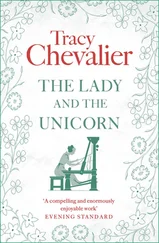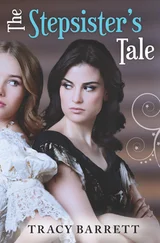Suddenly, a sparkling swarm of little girls and the adults whose careers and daughters were these little girls were tearing towards a wall. The little man in glasses taping the paper up barely made it away with his toes still attached. I got the feeling that my lungs were crumpling up, and I tried to remember how to inhale. I told myself that each movement in my program had had a purpose. I hadn’t thrown one arm above on a Lutz just because I could. I hadn’t snapped my leg from behind to front, drawn myself down into a sit spin and changed feet for no reason, nor had I counter-rotated footwork inexplicably. But now it was the judges who decided if the reasons I had enumerated in stretched legs and quick spins were enough.
I didn’t even see the scores. Lauren started screaming. Alana Moranis shoved past, spitting congratulations like a wad of flavor-tired gum.
“First! First!” my father hollered.
“My baby! My baby!” my mother screamed.
There were tears on my cheek that weren’t mine. There were arms squeezing and pulling me up.
“First! First!” my father said again.
“What did I tell you?” Lauren said.
“It was all worth it,” my mother said.
“I don’t know,” I said. Because what is worth anything when everything you’ve worked for is accomplished, a thing of the past tense? And then I remembered this was only a qualifier. There was more left, so much more left. Tomorrow I would be back to practice and testing my mother’s patience in the rink basement. I would graph my statistics and record them on a calendar leading to the Junior Olympics. There would be falling and getting up and measuring diced peppers. Mornings would be waking with a hand ready to hit the alarm off and not being enough and being better and knowing there was even better, and I felt my heart start up: again! Again! Again!
Then the crowd was rushing in another direction, though it was too early for the next division’s scores. There were shouts as hysterical as those of victory, heart heard through the ears, two kin voices harmonizing broken dreams. I pushed through people as though through shower curtains. I threw open the locker room door. “You lost! You lost!” Emma was crying. Blood clung to gold sequins stitched around her neck, and her face was scored as a grilled pork chop. “You lost! You lost!” she screamed again, and where her mother’s arm hammered up and down I saw the magenta slash of her hand holding hard pink blade guards. Emma moved her arms to protect her face and her mother threw them off. She tore the glitter off her daughter’s dress, and the next smack trailed a long pink welt beneath her neck. Saliva fanned from the mother’s mouth and she was shrieking, “Everything I ever wanted is gone.”
YOU’RE a reader not only of people, I see, Doctor. You are also a Romantic. My father gave me a copy of that book, which he was assigned in college.
I put the doctor’s copy back on the shelf and continue eyeing the line of books. Centuries pass this way. People pass too. Dickens. Lacan. Fitzgerald. Flaubert. Freud. My father owns some of these books and often quotes passages proudly until my mother tells him to stop showing off. The longer I linger, the less I have to say for myself.
You’re welcome to borrow any of the books on the shelf.
I read for keeps, doc: “O Rose, thou art sick!/ The invisible worm/ That flies in the night,/ In the howling storm,/ Has found out thy bed/ Of crimson joy:/ And his dark secret love/ Does thy life destroy.”
“The Sick Rose.” Is that your favorite?
My favorite poem of his is perhaps one of his prints, “Job’s Evil Dreams” from the Book of Job. It’s a frightening image, in which God has been transmuted to a serpent-wound Satan, hovering above suffering Job. Beneath the image is the inscription Why do you persecute me as God & are not satisfied with my flesh.
I had forgotten Blake was also an engraver, the doctor says.
The beauty of forgetting is you don’t know what you’re missing, but I suppose that’s antithetical to your line of work. Or rather, it makes the job impossible, I say.
There are many processes used in the profession. We can try any number.
Hedging bets is only rewarded in finance, and even then only sometimes. In capitalism and out, the greater the risk, the greater the reward.
Do you consider yourself a capitalist?
Well certainly I will never be a communist. I’ve never been much for sharing.
And yet you shared your skating hopes with your father quite generously. Would you agree?
It’s odd to think of sharing something that was ours. You can’t monopolize dreams.
The doctor looks at me patiently.
There was nothing generous about it, I say. But of course there was. Some people might not care for their loved ones to involve themselves in their dreams at all. They might consider it interference, or they might consider such vicarious living distasteful, a way of taking a dream that isn’t theirs. I think of Mrs. Closerman and Emma, psychical Siamese twins, with two minds and one body between them. I think of the mother heaving her purse on the ice one day in frustration, asking, “If you’re going to throw away your career, why am I even here?” and the daughter telling her “You’re not throwing away your career. You’ll do better. Please will I stay?” Mrs. Closerman wept over the wastebasket after she threw away Emma’s skates.
If by saying that I shared my hopes with my father you mean that I made him suffer, then yes, I did. We put all of ourselves into my dream, and when it was over, I left us with nothing.
You had each other. You had your relationship. You cannot blame yourself for anything your father might have felt.
She says it with such certainty, as though certainty is intrinsic to any relationship. She says it as though people are dependable.
To be culpable is to be capable, Doctor. This is what we’ve learned from the justice system. You cannot be burdened with guilt if you are insane, and I am not insane, as I’ve said. I am utterly normal. And if there is one thing that I wish to cling to, it’s that I was capable. That I am normal, capable, culpable for the loss of the life we lived so beautifully those years, thinking I could be better and better and better.
And did you consider your father at all culpable?
Is this a way for you to ask if he was capable?
You can answer however you see fit.
I look at my shoes. It’s something I do when I don’t know how to answer without admitting I’m wrong. They don’t allow shoelaces here. Shoelaces could be used to hurt someone. So could spiral notebooks, bobby pins, or balloons. I guess you can tell a loony bin runaway by the Velcro shoes.
And if I don’t? I ask.
If you don’t answer?
If I don’t see any way to answer fitly. I think about how people are in and out, leaving and dying and never there for you in the first place. First place, third place, in any case, wanting more, wanting something, wanting you to want less.
In this instance we might suppose that a non-answer is still an answer, the doctor says, and we might plumb the non-answer answer for the question of why. Why, for example, do you see no fit way to answer the question of your father’s culpability?
Because of “The invisible worm/ That flies in the night.”
You mean yourself?
I didn’t say that.
And yet, your name: Alivopro. You said it was a compression of the phrase Alis volat propiis , she flies with her own wings. Is the she who flies with her own wings, too, the invisible worm that flies in the night?
She’s the rose. She’s the worm. She’s the howling storm.
A great multiplicity of the natural world.
Читать дальше
